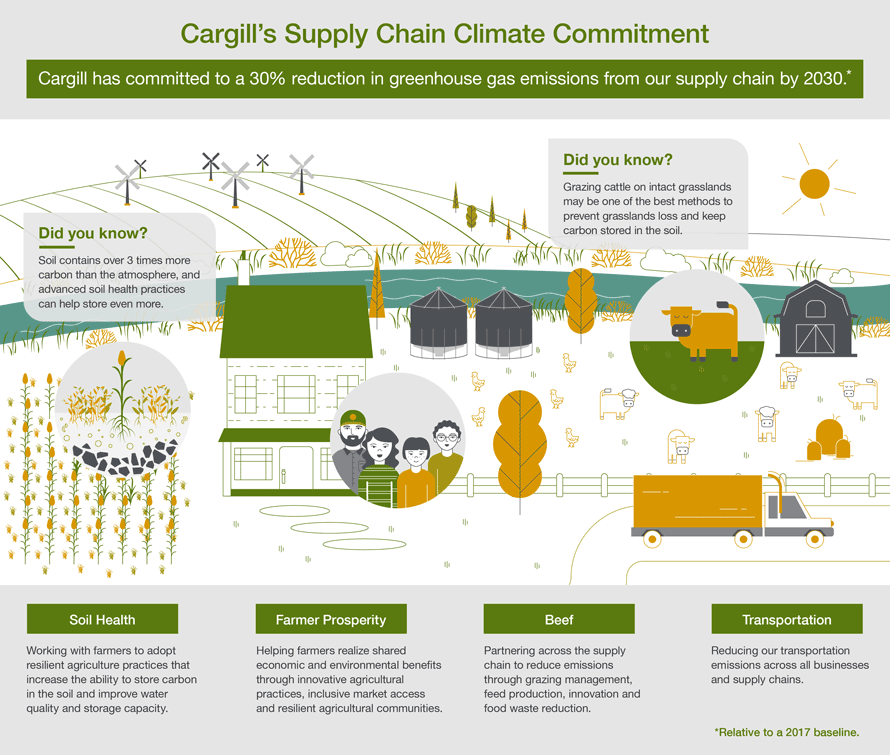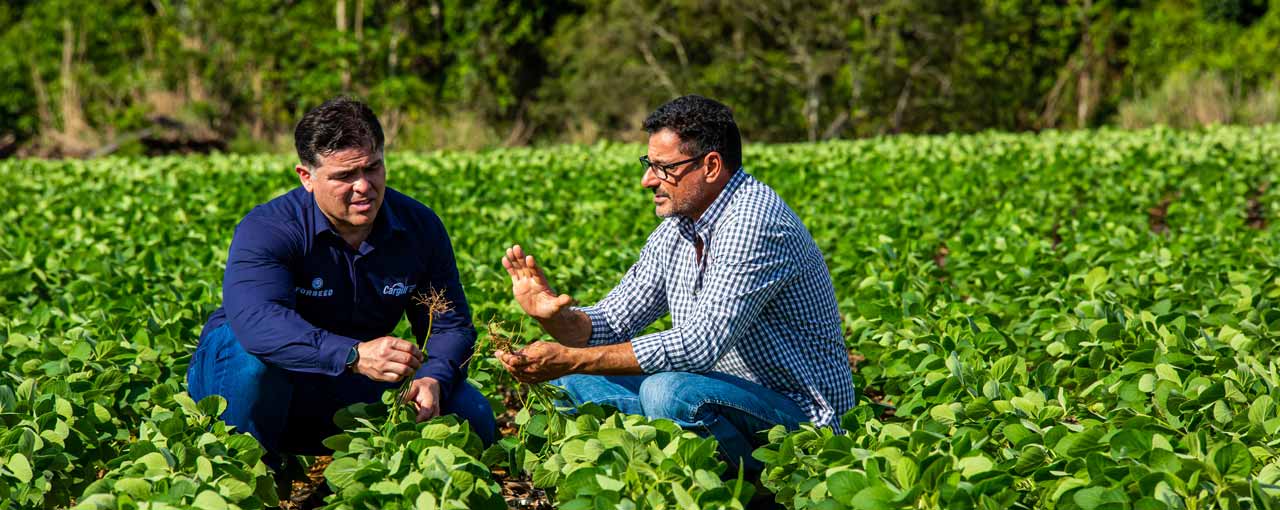Climate
Innovating together for a better future
Our food system is resilient, but it’s never faced challenges quite like this. Our population is growing, our water sources are dwindling, and our climate is changing.
We’re doing everything we can to meet the challenge across the global food system, from reducing emissions across our global supply chains to building sustainable practices into farming processes around the world.
Addressing climate change and helping farmers isn’t mutually exclusive. In fact, farmers and agriculture are how the world can solve today’s challenges. We’re committed to working with our partners around the world to improve their environmental impact and to supporting and empowering farmers, whose livelihoods are increasingly affected by the impacts of climate change.
We’re taking action to:
Reduce emissions and sequester carbon
We are taking action across our operations and supply chains to reduce our Scope 1, 2, and 3 greenhouse gas (GHG) emissions against the measurable and time-bound, science-based targets detailed in this report9 . This includes steps to scale regenerative agriculture in our supply chains, implement process efficiency and technologies in our facilities, expand the use of renewable energy projects at our plants, and decarbonize our ocean transportation business.
Innovate new products and solutions
We are collaborating with customers and suppliers to better enable them to meet their GHG emissions reduction goals through the development of products created from more sustainable raw materials. We are advancing our capabilities by, for example, building out our Life Cycle Assessment (LCA) competencies and developing a carbon footprint screening tool for the research and development of our alternative protein products.
Scale new markets
We continue to invest in emerging markets that help to decarbonize food, agriculture, and other sectors. We are providing more farmers with access to environmental markets through the expansion of Cargill RegenConnect®. We’re also growing the market for renewable fuels and nature-derived chemistries used for a wide range of applications, such as increased recycled asphalt content for roads and the replacement of petrochemical-derived ingredients in personal care products.
Support climate policy and collaboration
We promote decarbonization in agriculture, manufacturing, fuel, and energy sourcing, and advocate for public policies that align with our strategies. We support the Paris Climate Agreement and government actions to address climate change. We actively engage in several pre-competitive initiatives to reduce emissions across supply chains, such as the MIT Climate Consortium, and the Global Maritime Forum’s Decarbonization Task Force.

News Highlights
What is methane? Why it matters and what we’re doing to reduce it.
We explain what methane is, why it contributes to climate change and how Cargill is working to reduce it in agriculture.
Read Time: 5 minutes
Netting zero: Helping fish farmers fight climate change
Cargill’s SeaFurther Sustainability initiative is connecting customers and suppliers to create a more sustainable seafood industry.
Read Time: 5 minutes
Soil, sails and solar: Learn 4 ways Cargill is fighting climate change
From healthy soil to sustainable shipping, we’re working to combat one of today’s most pressing challenges.
Read Time: 8 minutes
What is decarbonization? Everything you need to know.
Learn how we’re working to decarbonize the food and agriculture system.
Read Time: 5 minutes

